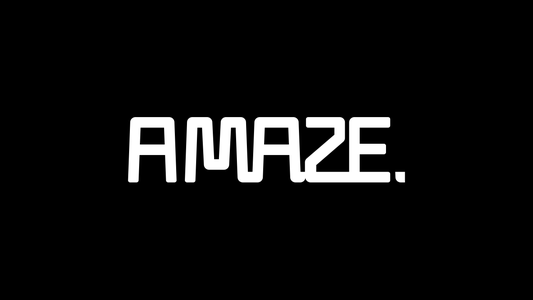
[The GameDiscoverCo game discovery newsletter is written by ‘how people find your game’ expert & GameDiscoverCo founder Simon Carless, and is a regular look at how people discover and buy video games in the 2020s.]
Good day, and welcome to the first GameDiscoverCo newsletter of the week, folks. Hope everyone had a great Thanksgiving (if in the U.S.) or a great ‘waiting for people to come back from Thanksgiving to return their emails’ (if in the rest of the world.) Which you should be happy to do, by the way, ‘cos time off should be sacred.
Exo One: zooming behind the planetary numbers?
So just before it came out a few days ago, Thomas Reisenegger of co-publisher Future Friends Games was kind enough to post a Twitter thread about Jay Weston’s largely solo developed ‘planetary landscape flyover’ game Exo One, which released on November 18th on PC, Xbox, and Game Pass (PC/Xbox).
Future Friends came on to really ‘push the envelope’ on interest for the game, which had a Steam page back in 2017 and a Kickstarter. But it only really got going wishlist-wise in late 2019 - and it hit 100,000 Steam wishlists just before the game launched.
Thomas notes: “There was no ad spend for the game, so all wishlists come from organic social media posts, influencer and press outreach and Steam event features.” And with Future Friends being a small but nimble co-publisher which follows a lot of the best practices we discuss here, Thomas’ annotated graph on what worked is v.handy:

There’s a lot of great detail in here, but we wanted to highlight some of the things that we think worked particularly well for this graphically lush (big advantage!) 3D game:
TikTok - if you look at Exo One’s TikTok account, with multiple multi-million view videos, it’s working! Thomas notes on the platform: “Currently TikTok is a big repeated wishlist driver for us. These are likely to be wishlists that convert less well than others, but it’s still a lot better than no wishlists - and relatively low effort.” Some good use of ‘personal’ videos, too.
Influencer builds - we’re big fans of doing multiple alphas, betas and demos, but haven’t discussed influencer-exclusive builds much. They are a great idea for small and medium-sized games, and Thomas points to “periods with no big spikes but a high daily average that accounted a lot of the 100k (see influencer build.)”
Steam prologue - the ‘standalone Prologue’ discussion continues, but for Exo One, it totally worked: “The free prologue demo was a big wishlist driver for us that seemed to have upped our daily average and sprung a number of influencer videos + seems popular among the TikTok following.”
Miscellaneous takeaways - Thomas noted: “Imgur worked well in the early campaign but is far more tricky now”, which is something we’ve heard elsewhere. And Exo One was in three (!) Steam Festivals/NextFests, before Valve changed eligibility rules as the Fest popularity grew, which no doubt helped.
Thomas’ conclusion is worth remembering - there’s no one thing that makes your game successful, pre-launch: “As with most games we work on, we don’t think there was a single silver bullet that helped grow the wishlists to where they are. We got there through a mix of constantly marketing the game in different avenues, and looking out for new opportunities as we went.”
For context, here’s the lifetime wishlist additions/outstanding wishlists for Exo One, until shortly before the game’s release:

One of the reasons we wanted to wait a little to run this story was that we wanted to see how Exo One fared on Steam. And it’s done very well. It maxed out at 747 CCUs - which is quite good in itself, but remember it’s a shorter 4/5 hour one off ‘experience’, which suppresses CCUs long term.
And if we look in our Steam review-centric Plus-exclusive post-release chart, it’s #12 out of all 911 games released so far in November 2021- ranked by # of Steam reviews in its first week. This is very impressive:

Also worth noting here - the game has a healthy 93% Positive review rating, despite a few reviews saying they wished the game was longer/replayable and a bit less cryptic. (They were still ‘thumbs up’, because the experience itself was so memorable.)
And Exo One’s ‘Hype To Reality’ ratio - GameDiscoverCo’s new number ranking launches by comparing Hype score to first week review # - shows it at 0.51, vs. roughly a 0.15 median for bigger launches for the month. That’s more than 3x normal, and in the upper range of our results.
The game may have a lower ‘reviews to sales’ ratio, we suspect (maybe 20-30?) But even with that, it’s probably over $500,000 gross on Steam already, we’d guesstimate. And presumably heading for between $1-$2 million gross in its first year.
Then there’s the Xbox/PC Game Pass deal too, which could be between $300k and $600k net - or even more - for a 12-18 month contract for a game of this size and interest. So for a solo project - even one which took a few years - it’s going to be a very good return on investment. (Even ignoring the fact that games are often passion projects that shouldn’t be measured with explicit ROI…)
So… congrats all round! And it’s nice to see how the sausage was made on this title.
Publishers vs. developers: the aftermath!

As you might except, last Wednesday’s newsletter on the conflict between publishers and developers got quite a few responses and reactions, many of them marveling at the ‘dogs and cats living together’ style relationships we have to navigate here.
We were particularly stimulated by this one from SMG Studio’s Ashley Ringrose, who has self-published, worked with publishers and worked with platforms, so has some good perspective: "Publishers need to band together to explain their value better. The vocal devs do a much better job of complaining why publishers are 'bad'. [As] for the indies that had a good experience with publishers, they are too busy working to complain.”
Nicolas Godement of Asmodee Digital also had a response to a related Twitter threadon the ‘cost of entry’ going up in the space, where he commented: “I do think the days of simply aggregating lots of games without much effort are over. As a publisher you have to put the hours in, real people in-house behind the project.”
If I was making a pitch for publishers being worth it - even at some of these higher percentages? Then I would take the ‘marketing, streaming/media outreach, QA, porting’ as a given, but add in:
Design direction to make your game better: Nicolas from Asmodee mentioned “digging deep into the game's design and offer practical advice”. And I think if your publisher knows what they are talking about, this can be one of the most helpful services they offer.
Platform help and advantages: who knows Sony and Microsoft better than you? Who has the ability to get your game in publisher-specific Steam events? Who has extra followers on their Steam publisher page which means those people will get wishlist notifications when your game launches?
Actual game production help: publishers can be an organizing force to get your game finished - by actually helping you calculate how much work you have & helping you optimize for best effect. In the best case, they can help you be realistic about your goals and scope - which can be a lifesaver.
Launch crunch & stress: the amount you have to do around launch as a dev can be overwhelming, and it can be very personally stressful, whether you are successful or not. The best publishers can smooth this over, provide extra manpower to cover the community and outreach, and make it way less painful.
So there’s my attempted pitch - and publishers, maybe try to refine your true value add, past this rudimentary stump speech? It’d be nice to see more publisher decks and one sheets that clearly define their role, past ‘we help to make your game successful’.
(Caveat: GameDiscoverCo has publisher clients, of course. But we’ve also advised devs to self-publish, instead of signing with publishers. So we think we speak both dog and cat fairly fluently. Arf?)
The game discovery news round-up..

OK, finishing out today’s newsletter, let’s have a close look at the things going on in the game discovery and platform space - and pass it along to you all for your delight and delectation:
In case you missed it, Steam passed 27 million concurrent users over the holiday weekend, topping out at a super impressive 27,385,000. (Last milestone was 26 million CCU back in April.) As PC Gamer notes:




































